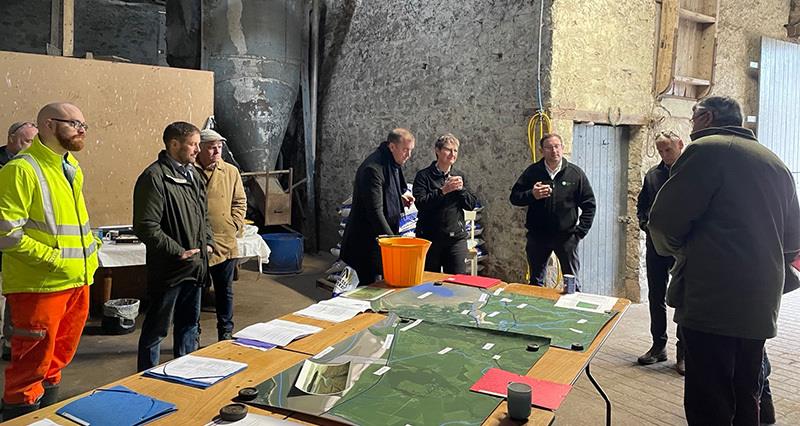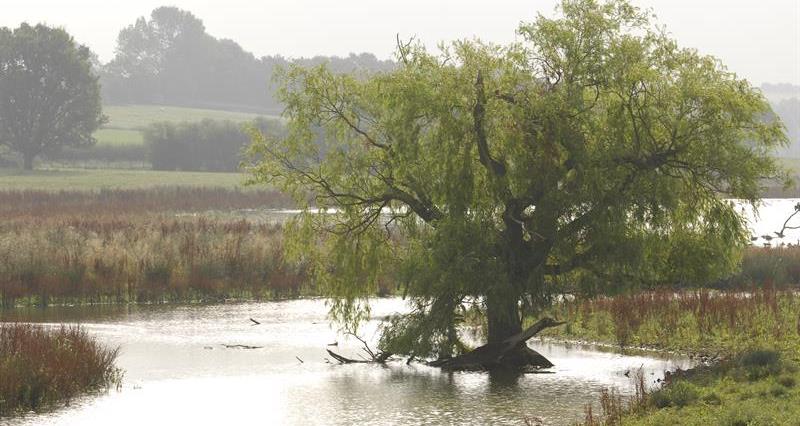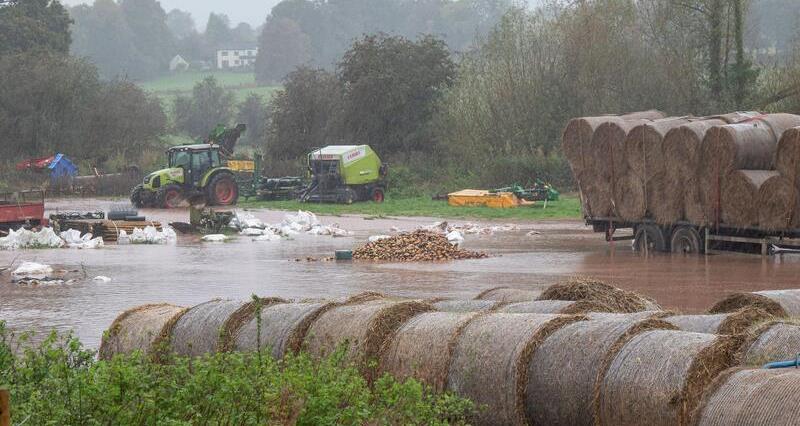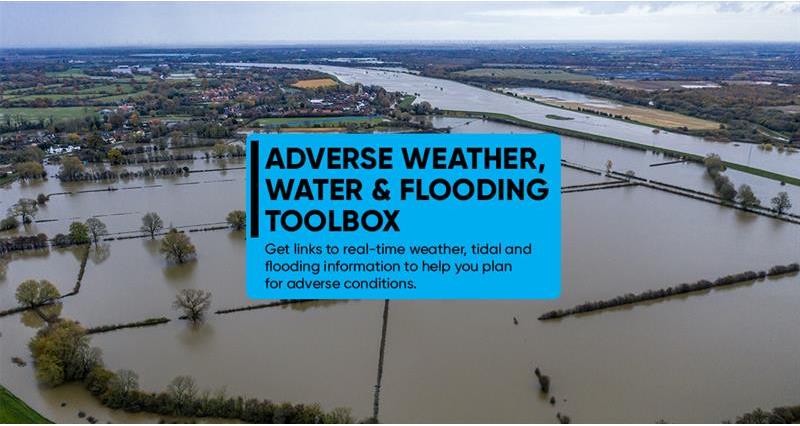The meeting, which was hosted by dairy farmer David Lawrence at Holme Farm, Grange over Sands, gave Mr Duffy the opportunity to see the impact flooding has on local people and businesses first-hand.
Flooding has been an issue in the Lyth and Winster catchments for over ten years. The movement of the sands in Morecambe Bay means River Winster is not discharging water into the bay effectively. This is causing outfalls in the area to silt up and become blocked, resulting in flooding on farmland and roads.
Various meetings have been held to try and find a solution. As the outfalls discharge into a SSSI, Natural England and the MMO (Marine Management Organisation) are also involved, and farmers are concerned about the length of time it takes for permit applications to be decided.
Local landowners have set up the Lynster Farmers Group to bring local people together to find a long-term solution to the issues and has created a plan to allow a functioning and sustainable conveyance of water into the Estuary.
Action needed sooner rather than later
The meeting gave representatives of the Lynster Farmers Group the opportunity to present their plan directly to the EA CEO. Mr Duffy gave guidance on potential challenges with the plans, however he was pleased to see the collaborative work of the group.
The NFU asked for Phillip and his area team to work proactively with other Defra organisations to encourage a positive relationship.
“It’s fantastic to have Philip Duffy, chief executive of the Environment Agency, out on farm so he can recognise the issues farmers are facing, see the real risk to food production and to understand the public goods farmers deliver.”
NFU Deputy President Tom Bradshaw
Mr Duffy confirmed that he was keen to see a constructive relationship through the establishment of an Internal Drainage Board and collaboration with Network Rail, due to the plans involving a railway line. He added that he is prepared to have a conversation with the CEO of Network Rail and the Crown Estate about the group’s ambitions.
Host and dairy farmer David Lawrence said: “The meeting went well. It’s quite difficult to portray the ten years we’ve had. We came over a little bit emotional sometimes because for us we’re no closer to solving this now than we were ten years ago.
“We’ve had a lot of talking going on over the last ten years and we’ve had no action. It’s action we need and sooner rather than later. We’re just hopeful that this is one of the meetings that there is an outcome from because the other meetings there hasn’t been any outcome.
“One of our big asks was for help - we need help from them to get clearance licences so that we can progress with our plan. If we can get everybody talking like Mr Duffy says, then this should be sorted fairly soon.”
Seeing first-hand the issues farmers face
NFU Deputy President Tom Bradshaw said: “For more than 10 years farmland has been flooded by the River Winster causing huge financial stress and significant challenges for the personal wellbeing of individuals involved.
“This stems from a failure to get to grips with the challenges of managing watercourses and improving and maintaining our flood defences.
“It’s fantastic to have Philip Duffy, chief executive of the Environment Agency, out on farm so he can recognise the issues farmers are facing, see the real risk to food production and to understand the public goods farmers deliver.
“We need to see solutions to mitigate the impact of flooding of farmland to ensure our farmers and growers can continue producing food for the nation. We’re asking the Environment Agency and other stakeholders to deliver a proactive plan of management and re-investment in the watercourses and flood defences to ensure our farmers are protected.”



